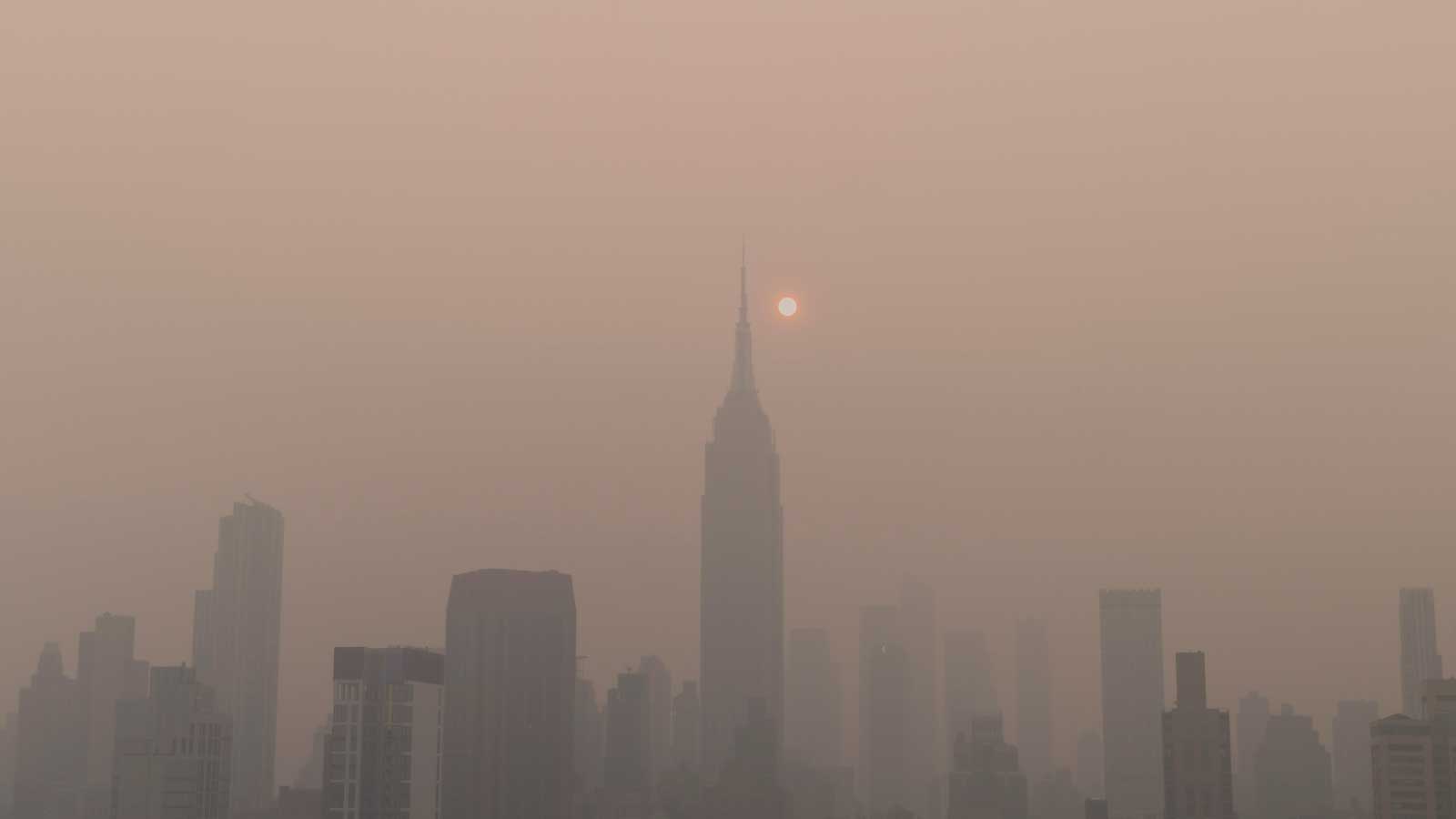Climate change is supercharging heat waves, hurricanes, and wildfires. Which hazard affects you the most depends on luck and geography. In the North American West and too often farther away, one of the increasingly worrisome effects is wildfire smoke.
This smoke is more than a big nuisance. It’s also a significant threat to many aspects of health – for humans but also for the atmosphere, animals, and plants. These articles can help you understand what the risks are, why they are risks, and what you can do to reduce them for yourself and your family. They are also likely to surprise you with smoke effects that you may not have thought about.
Overviews
The global picture
Specific health effects
- “Breathing wildfire smoke could raise dementia risk, new study finds.” Kristoffer Tigue. Focus on wildfire smoke and agricultural air pollution, centered in upper Midwest.
- “Are wildfires linked to depression? How smoke can affect mental health.” Adrienne Matei, The Guardian. Increasing evidence that this smoke can damage cognitive functions and factor in depression and anxiety, plus things to do that go beyond the usual recommendations.
- “As extreme fires multiply, California scientists zero in on how smoke affects pregnancy and children.” Emma Foehringer Merchant, Inside Climate News. Interesting research underway about effects on pregnancy and birth outcomes.
- “Study: Smoke particles from wildfires can erode the ozone layer.” Jennifer Chu, MIT News. Describes a study published in (paywalled) Nature by Susan Solomon and others about the growth in the southern ozone hole after the devastating 2019-2020 fires in Australia. Though this article doesn’t mention it, the ozone hole increases the risk for humans of skin cancer and cataracts.
- Smoke also worsens health-threatening surface-level ozone and smog in many places in the U.S. West: “‘We’re only treading water’: Ozone, smoke and smog besiege Coloradans despite climate efforts.” Sharon Udasin, The Hill.
Indoor air
Read more: Wildfire smoke getting into your home? Build a DIY Corsi-Rosenthal air filter.
Plants and animals
- “Trees don’t like to breathe wildfire smoke, either – and they’ll hold their breath to avoid it.” Delphine Farmer and Mj Riches, The Conversation. Yet another effect that’s not obvious but does make sense.
- “Wildfire smoke: An emerging threat to West Coast wines.” Liza Gross, Inside Climate News. How smoke alters the taste of grapes and thus wine, with examples from California and Australia. Oddly, “grapes appear to be the only commodity affected by smoke taint.” To add attention to field workers, read “Wildfires are growing under climate change, and their smoke threatens farmworkers, study says.” Dorany Pineda, Associated Press.
- “How does wildfire smoke affect wildlife?” Braelei Hardt, National Wildlife Federation blog. Good account of known and suspected effects on health and behavior.
- “Wildfire smoke and animals.” American Veterinary Medical Association. What to watch out for and how to protect both pets and livestock.
We help millions of people understand climate change and what to do about it. Help us reach even more people like you.
Source link


